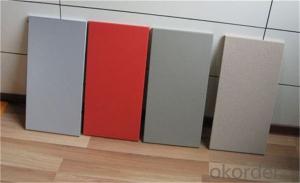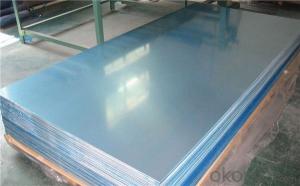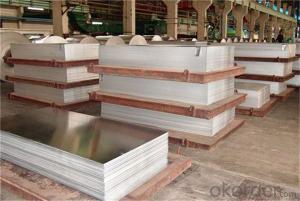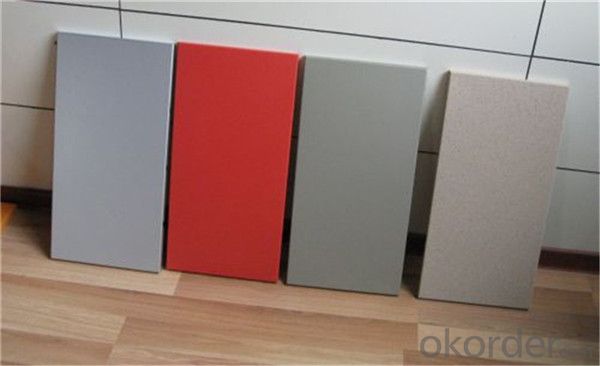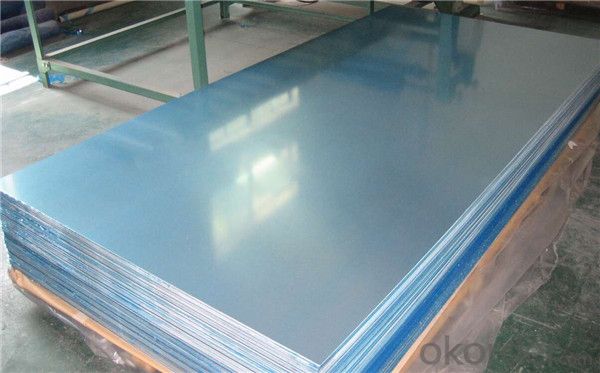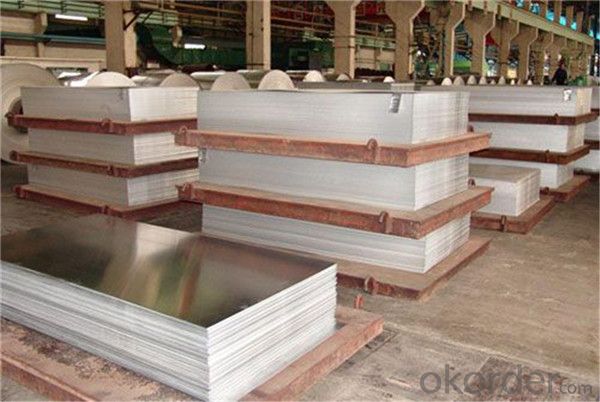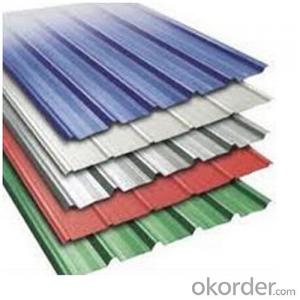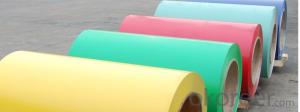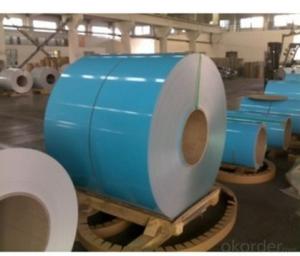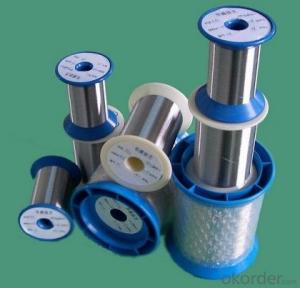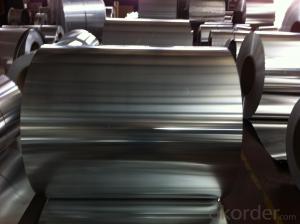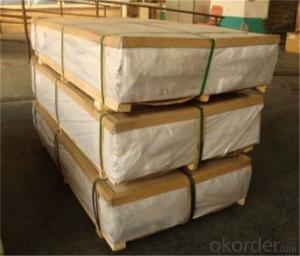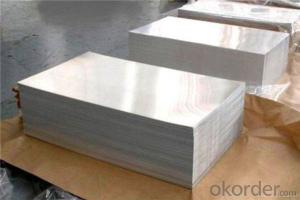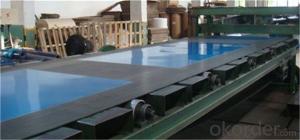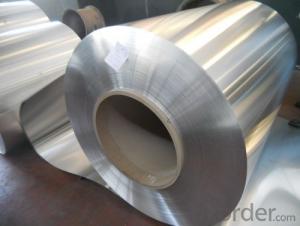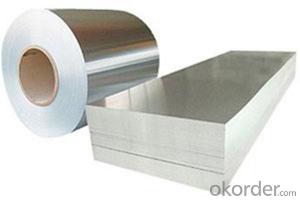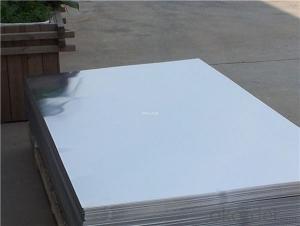Aluminum Step Tile Roofing Sheets 1050 3003 1060 1100 1.2mm 3mm Thick
- Loading Port:
- Shanghai
- Payment Terms:
- TT OR LC
- Min Order Qty:
- 5 m.t.
- Supply Capability:
- 100000 m.t./month
OKorder Service Pledge
OKorder Financial Service
You Might Also Like
Specification
PRODUCTS ADVANTAGE:
1: Thousands of already-made extrusion moulds are free for customer;
2: Any surface treatment is acceptable to make to meet your needs;
3: Strict quality control for your goods, very little scratch;
4: Free surface and both edges of profiles are smooth and with no burr;
5: Standard alloy composition;
PRODUCTS CHEMICAL COMPOSITION:
| Alloy | Chemical Composition % | ||||||||||
| Si | Fe | Cu | Mn | Mg | Cr | Zn | Ti | Others | Al | ||
| Single | Tol | ||||||||||
| 1060 | 0.25 | 0.35 | 0.05 | 0.03 | 0.03 | - | 0.05 | 0.03 | 0.03 | - | 99.6 |
| 2011 | 0.4 | 0.7 | 5.0-6.0 | - | - | - | 0.3 | - | 0.05 | 0.15 | Remain |
| 2014 | 0.5-1.2 | 0.7 | 3.9-5.0 | 0.4-1.2 | 0.2-0.8 | 0.1 | 0.25 | 0.15 | 0.05 | 0.15 | Remain |
| 2024 | 0.5 | 0.5 | 3.8-4.9 | 0.3-0.9 | 1.2-1.8 | 0.1 | 0.25 | 0.15 | 0.05 | 0.15 | Remain |
| 3003 | 0.6 | 0.7 | 0.05-0.2 | 1.0-1.5 | - | - | 0.1 | - | 0.05 | 0.15 | Remain |
| 5052 | 0.25 | 0.4 | 0.1 | 0.1 | 2.2-2.8 | 0.15-0.35 | 0.1 | - | 0.05 | 0.15 | Remain |
| 6060 | 0.3-0.6 | 0.1-0.3 | 0.1 | 0.1 | 0.35-0.6 | - | 0.15 | 0.1 | 0.05 | 0.15 | Remain |
| 6061 | 0.4-0.8 | 0.7 | 0.15-0.4 | 0.15 | 0.8-1.2 | 0.04-0.35 | 0.25 | 0.15 | 0.05 | 0.15 | Remain |
| 6063 | 0.38-0.43 | 0-0.25 | 0.1 | 0.1 | 0.5-0.6 | 0.1 | 0.1 | 0.1 | 0.05 | 0.15 | Remain |
| 6082 | 0.7-1.3 | 0.5 | 0.1 | 0.41 | 0.6-1.2 | 0.25 | 0.2 | 0.1 | 0.05 | 0.15 | Remain |
| 6463 | 0.2-0.6 | 0.15 | 0.2 | 0.05 | 0.45-0.9 | - | 0.05 | - | 0.05 | 0.15 | Remain |
| 7003 | 0.3 | 0.35 | 0.2 | 0.3 | 0.51 | 0.2 | 5.0-6.5 | 0.2 | 0.05 | 0.15 | Remain |
| 7005 | 0.35 | 0.4 | 0.1 | 0.2-0.7 | 1.0-1.8 | 0.06-0.2 | 4.0-5.0 | 0.01-0.06 | 0.05 | 0.15 | Remain |
| 7075 | 0.4 | 0.5 | 1.2-2.0 | 0.3 | 2.1-2.9 | 0.18-0.28 | 5.1-6.1 | 0.2 | 0.05 | 0.15 | Remain |
PRODUCTS DETAIL:
| Brand name | Bengal Aluminum |
| Aluminum products | Aluminum profile,Thermal break profile,Aluminum bar,Aluminum tube/pipe, Aluminum sheet,Aluminum heat sink section,Aluminum curtain wall,Aluminum handle,Aluminum frame,Aluminum rail,Aluminum accessory |
| Thickness | Mill finish profile thickness:0.7mm-3mm |
| Anodizing film thickness:over13μ | |
| Power coating film thickness:over13μ | |
| Length | General length:0-6m |
| Meet customers requirement | |
| Shape | Round,Flat,Square,Oval,Triangle,Pentagon, Hexagon,T,L, or customized requirement available |
| Surface treatment | Powder coating,Anodizing,Sand blasting, wood grain,electrophoresis, polishing,PVDF,etc |
| Deep process | CNC,Drilling,Milling,Bending,Cutting,Welding,etc |
| Colour | Silver, bronze,Black,Champagne,gold,White,Grey,Green,etc |
| Temper | T3-T8, O-H112 |
| Application | Windows and doors frame,Curtain wall,Furniture,Kitchen cabinet door,LED light,ceiling,machine,fences,Construction,Industrial,etc |
| Lead time | 8-20 days after the sample is confirmed by buyer |
| Mould fees | Free of charge if use existing mould |
| Charged by the size if open up a new mould | |
| Packing details | Packed with plastic protective film to protect each piece inside |
| Wrap to be bundles by waterproof craft paper | |
Packing ways depend on the profile goods design, we can meet customized requirement |
PACKAGING AND SHIPPING:
Your aluminum extrusion profile goods are always packaged to ensure that thay arrive safely on their long journey to you. The best packaging solutions depend on the design.We provide our customers with clear packaging consuting services. Normally, the products will be packed with plastic protective film to protect each piece inside and wrap to be bundles by waterproof craft paper outside.
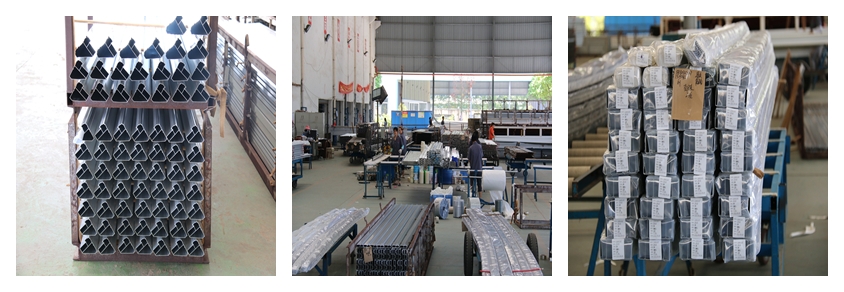
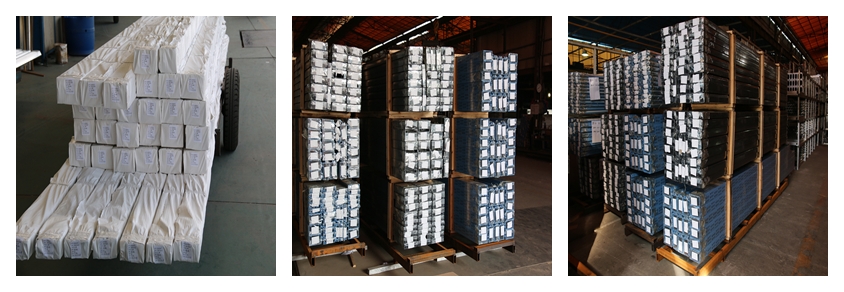
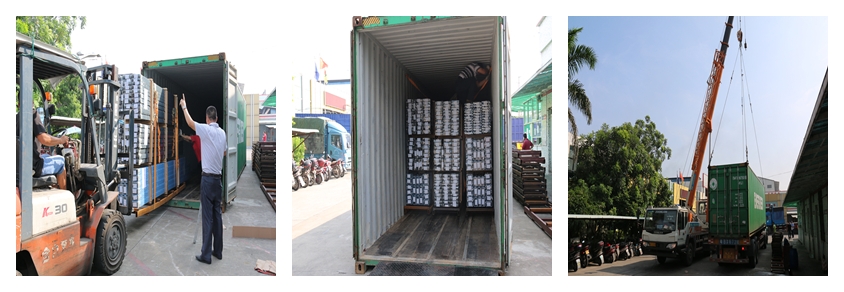
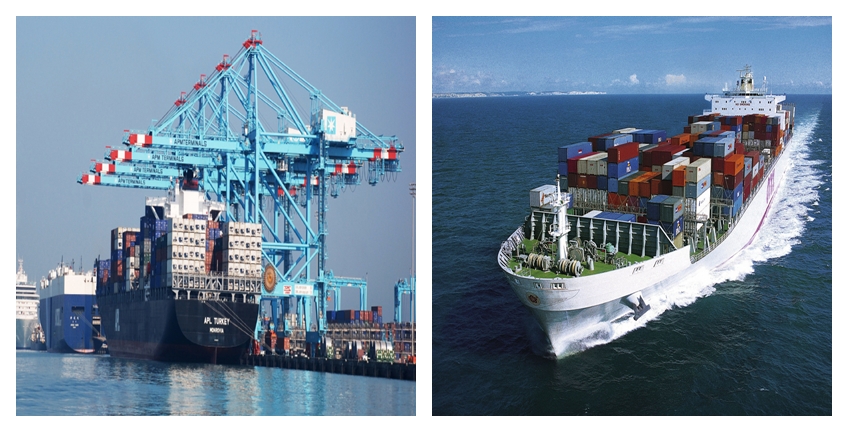
Our Services
Onsite Factory Services | Onsite Factory Services |
|
|
We factory also provides the following services:
Engineering design
Research and development
Design consulting
Photos
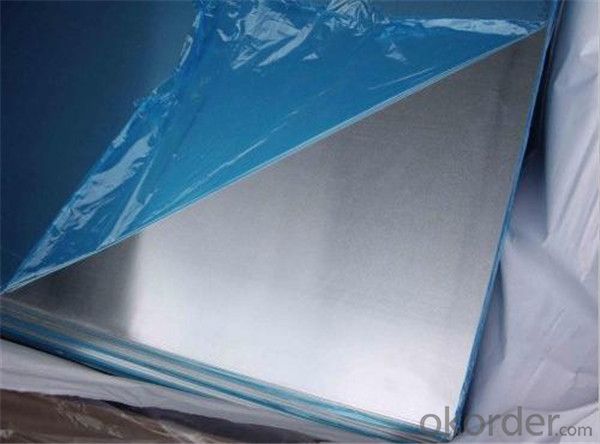
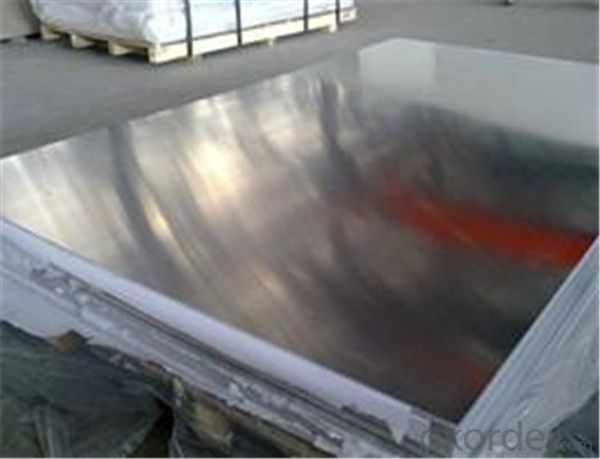
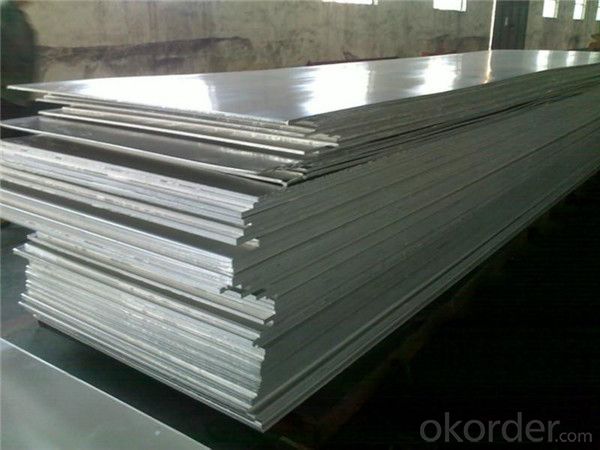
- Q: What are the limitations of using aluminum sheet?
- There are several limitations associated with using aluminum sheet in various applications. Firstly, aluminum is a relatively soft metal compared to other options such as steel or titanium. This means that it is more susceptible to scratches, dents, and deformation under heavy loads or impacts. Therefore, it may not be suitable for applications that require high strength or resistance to damage. Secondly, aluminum has lower thermal conductivity compared to other metals. This can be a disadvantage in applications where efficient heat transfer is crucial, such as in heat exchangers or cooling systems. Thirdly, aluminum is prone to corrosion. Although it has a natural oxide layer that provides some protection, it can still corrode in certain environments, especially in the presence of moisture or acidic substances. This limits its use in applications where corrosion resistance is vital, such as marine or chemical industries. Additionally, aluminum is a relatively expensive material compared to other options. Its production and extraction processes require significant energy and resources, contributing to higher costs. Therefore, it may not be the most cost-effective choice for some applications. Lastly, aluminum has limited compatibility with certain substances. It can react with certain chemicals, resulting in degradation or contamination. Therefore, it may not be suitable for applications where it will come into contact with substances that can cause adverse reactions. Overall, while aluminum sheet has numerous advantages such as its lightweight nature, good electrical conductivity, and ease of fabrication, it is important to consider its limitations when selecting it for specific applications.
- Q: Can 101 aluminum sheets be embossed or textured?
- It is possible to emboss or texture 101 aluminum sheets. Aluminum is a highly adaptable material that can be easily molded and formed. To emboss or texture aluminum sheets, pressure or heat is applied to create patterns that are either raised or recessed on the surface. There are different methods available for this process, including mechanical embossing or chemical etching. As long as the aluminum sheets are of suitable thickness and good quality, it is feasible to achieve desired designs and patterns through embossing or texturing.
- Q: Can aluminum sheets be used for HVAC ductwork?
- Indeed, HVAC ductwork can utilize aluminum sheets. Owing to its lightweight and corrosion-resistant characteristics, aluminum stands as a favored option for ductwork. Moreover, it proves simple to manipulate and can be molded into diverse configurations and dimensions. Furthermore, aluminum ductwork is renowned for its robustness and extended lifespan. It frequently finds application in both commercial and residential HVAC systems, effectively circulating air within a structure.
- Q: What is the thickness of the aluminum sheets?
- Depending on the specific product or application, the thickness of the aluminum sheets may vary. Aluminum sheets come in a diverse range of thicknesses, typically varying from 0.006 inches (0.15 mm) to 0.25 inches (6.35 mm) or possibly even thicker. The suitable thickness will be determined by the specific requirements and intended usage of the aluminum sheet.
- Q: This question asks for guidance on selecting aluminum sheets based on their intended use, implying a need for criteria or factors to consider when making such a choice.
- <p>When choosing aluminum sheets for different purposes, consider the following factors: 1) Thickness: Depending on the strength and durability required, select the appropriate thickness. 2) Alloy Type: Different alloys have varying properties; for instance, 1100 series is purest and softest, while 6000 series offers high strength. 3) Surface Finish: Choose between mill finish, anodized, or coated finishes based on aesthetic and functional needs. 4) Temper: This refers to the hardness and strength, with options like O (annealed), H14 (strain hardened), and T6 (solution heat treated). 5) Application: Consider the specific use, such as construction, automotive, or aerospace, as each may require specific properties. Always consult with a supplier or engineer for advice tailored to your project's needs.</p>
- Q: What is the use?
- The three and 3000 series aluminum on behalf of 300330033A21. Also known as China's 3000 series aluminum antirust aluminum production process is more outstanding.3000 series aluminum is made of manganese as main components. The contents of 1.0-1.5 in between. Is a series of anti rust function better. Routine application in air conditioning, ice box, car etc. in the moist environment, price more than 1000 written columns, is a commonly used alloy series.The four and 4000 series aluminum aluminum on behalf of 4A014000 series belongs to the high silicon content series. Usually silicon content between 4.5-6.0%. Belongs to the building material, mechanical parts, forging materials, welding materials; low melting point, good corrosion resistance of the product description: has the characteristics of heat resistance, wear resistanceThe five and 5000 Series 5052.5005.5083.5A05 series.5000 series aluminum plate belongs to the representative of the more commonly used aluminium alloy series, the main elements of magnesium, magnesium content in 3-5%. Also called aluminum magnesium alloy. The main characteristics of low density, high tensile strength, elongation rate is high. In the same area under the weight of the aluminium magnesium alloy is lower than that of other series. It is commonly used in aviation, such as aircraft fuel tank. The application in the conventional industries are more widely. The processing technology for slab continuous casting and rolling, which belongs to the aluminum plate series so can do deep processing. Oxidation belongs to one of the more mature aluminum series in China 5000 series aluminum plate.
- Q: Can aluminum sheets be used for automotive heat shields?
- Indeed, automotive heat shields can utilize aluminum sheets. The automotive industry favors aluminum for its remarkable thermal conductivity and resistance to heat. With a high melting point, aluminum effectively disperses heat, safeguarding diverse components from excessive exposure. Furthermore, aluminum sheets are lightweight and malleable, enabling tailored designs to suit specific automotive purposes. Ultimately, aluminum sheets present a dependable and economical choice for automotive heat shields.
- Q: Can aluminum sheets be used in automotive applications?
- Aluminum sheets find their utility in automotive applications. This lightweight and sturdy material brings a multitude of advantages to the manufacturing of automobiles. It is widely employed in the creation of car bodies, hoods, doors, roofs, and various other components. By incorporating aluminum sheets into automotive applications, the overall weight of the vehicle can be reduced, thereby enhancing both fuel efficiency and performance. Moreover, aluminum boasts exceptional resistance to corrosion, making it well-suited for enduring harsh weather conditions and exposure to road salt. Additionally, aluminum can be easily molded and shaped, facilitating intricate designs and detailing on automotive parts. In summary, the utilization of aluminum sheets in automotive applications contributes to the creation of vehicles that are lighter, more fuel-efficient, and visually appealing.
- Q: Can aluminum sheets be used for roof flashing?
- Yes, aluminum sheets can be used for roof flashing. Aluminum is a popular choice for roof flashing due to its durability, corrosion resistance, and lightweight properties. It provides a reliable barrier against water penetration and helps to redirect water away from vulnerable areas on the roof, such as valleys and chimneys. Additionally, aluminum flashing is relatively easy to install and maintain, making it a practical choice for roof flashing purposes.
- Q: What are the common thicknesses of aluminum sheets used in transportation industry?
- In the transportation industry, aluminum sheets are commonly used for various applications due to their lightweight, durability, and corrosion resistance. The common thicknesses of aluminum sheets used in the transportation industry typically range from 0.025 inches (0.63 mm) to 0.125 inches (3.18 mm). For applications such as automotive body panels, which require a balance of weight reduction and structural integrity, aluminum sheets with thicknesses of 0.040 inches (1.02 mm) to 0.063 inches (1.6 mm) are commonly utilized. These thicknesses provide sufficient strength while keeping the weight of the vehicle lower compared to steel counterparts. In the aerospace industry, where weight reduction is of utmost importance, thinner aluminum sheets are often used. Thicknesses ranging from 0.025 inches (0.63 mm) to 0.040 inches (1.02 mm) are commonly employed in the construction of aircraft structures, including wings, fuselage panels, and interior components. It is worth noting that the specific thicknesses of aluminum sheets used in the transportation industry can vary depending on the specific application, regulatory requirements, and design considerations. Therefore, it is essential to consult the relevant industry standards and specifications for precise information on the preferred thicknesses for different transportation applications.
Send your message to us
Aluminum Step Tile Roofing Sheets 1050 3003 1060 1100 1.2mm 3mm Thick
- Loading Port:
- Shanghai
- Payment Terms:
- TT OR LC
- Min Order Qty:
- 5 m.t.
- Supply Capability:
- 100000 m.t./month
OKorder Service Pledge
OKorder Financial Service
Similar products
Hot products
Hot Searches
Related keywords
